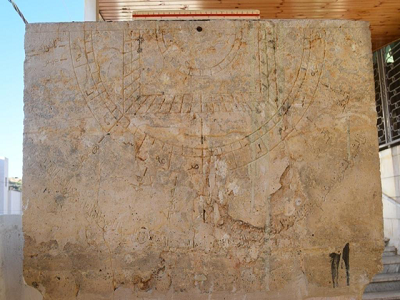The first specialised study on the discovery of sundials in Jordan has great potential to deepen public awareness and appreciation of the Kingdom’s astronomical history, according to the study’s author.
Speaking with The Jordan Times, Professor of Archaeology at the Hashemite University Mohammad Waheeb said that “rigorous efforts have been made by scholars and experts, the Greater Amman Municipality, the Ministry of Tourism and other relevant bodies, to preserve, promote and create awareness of the sundials that have been so far discovered in our country.”

A sundial is the earliest known timekeeping device, and uses the position of the sun and the subsequent shadows it makes to mark the time of day. As the day progresses, the sun changes its position relative to the sundial, causing the shadow to change as well, and thus reflecting the change in time, the scholar said.
Waheeb, who is the main author of the study, highlighted that the first recorded use of sundials occurred in ancient Egypt. In Jordan, sundials were in use until the 18th century, he noted.
“Until now, five sundials have been discovered at Abzakh Mosque in Wadi Al Sir, the Amman Citadel, Qastal Mosque, Madaba and Machaerus,” he said.
The study’s methodology was structured on field surveys, archaeological research, previous studies, as well as ancient chronicles and the traditional storytelling, Waheeb said.
The unearthing of Jordan’s sundials occurred fairly recently, and the national school curriculum does not yet feature the important archaeological discovery. The public lack of awareness of the sundials could be rectified with the establishment of a dedicated astronomy museum, according to Waheeb.
It is the scholar’s belief that Jordan “urgently” needs to establish a museum specialising in astronomy in order to “communicate our national discoveries to our people and the world”.
“Sundials are one of the most important achievements of civilisation found on our national territory,” he noted.
Discoveries related to sundials will be discussed during a conference on astronomy and archaeology hosted by Hashemite University at the end of the year, he added.
Source: www.jordantimes.com
